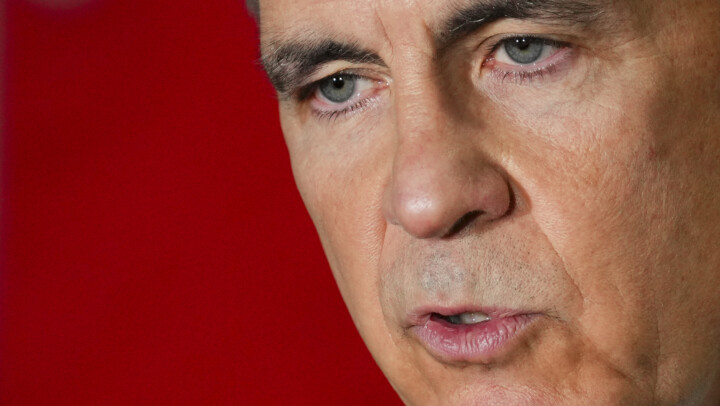In an exclusive interview with The Hub, Conservative leader Pierre Poilievre outlined the disincentives inherent to means-tested disability programs. As he explained:
One thing people don’t realize is that a lot of folks who have disabilities actually do work and enjoy working, but then they get punished by all these clawbacks… And so, they are trapped. I think the government has a great program called the Workers’ Disability Benefit, and it is meant to boost earnings for working people who have disabilities, and that gets them over that wall, and that’s something we need to look at boosting. Let’s make it that anybody who has a disability or anybody, period, who does another hour of work, gets a bonus, takes another shift, is always better off.
Poilievre’s assessment is correct: means-tested welfare benefits create distortions and bad incentives for recipients and the economy at large. Their high clawback rates create what is sometimes referred to as a “welfare wall.” Yet the problem isn’t limited to disability benefits. It extends to much of the Canadian welfare state.
If Poilievre wanted to do something substantive and counterintuitive, he would champion a reformist agenda to extend the principle of universality to federal welfare programs. The tradeoffs in terms of fiscal cost and other considerations would be outweighed by the enhanced incentives for recipients to participate more fully in the economy.
The case for means-tested benefits is straightforward. They target scarce public resources to those most in need. The downside, though, is that as recipients interact with the prescribed income thresholds, they’re likely to make behavioural decisions that are influenced by the design of the policy as opposed to their broader interests.
A good (or bad) example is one of Trudeau’s landmark policies: the Canada Child Benefit (CCB). In 2016, the Trudeau government replaced its predecessor’s Universal Child Care Benefit (UCCB) and other child benefits with the CCB in the name of better targeting public resources on families who needed them.
The UCCB had previously provided $160 per month for children aged 6 and younger, irrespective of a household’s income. The CCB replaced it with a more generous maximum annual benefit of $6,833 for children under six and $5,765 for children ages six to 17, but the benefit was gradually reduced based on income and number of children before being fully phased out somewhere roughly between $150,000 and $200,000 in household income.
The Trudeau government argued that the CCB’s approach enhanced the progressivity of the tax and transfer system and was a better use of scarce public dollars. Yet the introduction of means testing isn’t without trade-offs, specifically with respect to the incentive effects of its different income thresholds.
As a family’s income increases and its benefit is clawed back, its marginal effective tax rate—which measures how much of an extra dollar of income is lost due to a combination of income taxes, payroll taxes, and the clawback of government benefits—necessarily rises.
These marginal effective tax rates (or METRs) can interfere with incentives and distort behaviour. One analysis, for instance, found that, for middle-income families, the CCB has contributed to a decline in the secondary earners’ income by about $2,300 per year. The risk here is that the program’s policy design causes individuals and households to act differently than they otherwise would have.
A universal child care benefit that is distributed without means testing or clawbacks avoids this problem. Universality also has other advantages. It tends to have lower administrative costs and higher take-up rates. It’s also associated with less stigma since everyone is a recipient.
There’s an argument that universal benefits are less progressive than targeted programs. But that can be addressed in program design. The UCCB, for instance, was taxable, which means that high-income families had their benefits essentially taxed back.
There’s also the case that paying out benefits to every family necessarily reduces the generosity of the program relative to targeting its resources. But that’s ultimately a budgeting choice. The Trudeau government could have, for instance, maintained the principle of universality and increased the benefit, and offset the incremental costs by raising taxes or cutting other programs.
The point here is that the trade-offs are manageable and the upsides—particularly with regards to overcoming the costs of high clawback rates that Poilievre rightly identified—are arguably worth it. Reaping these upsides would necessitate a shift to a policy of universality across different federal welfare programs, including for children, seniors, persons with disabilities, and so on.

Conservative Party Leader Pierre Poilievre speaks to reporters outside of West Block on Parliament Hill in Ottawa on Thursday, May 15, 2025. Spencer Colby/The Canadian Press.
Yet though the Conservatives adopted universality in the design of the UCCB, they’ve generally been averse to boosting social welfare programs and their economic and fiscal costs in general. This aversion is something that dissuaded me from voting for the Conservative Party in the last election.
Herein lies an opportunity for Poilievre to do something that would challenge perceptions of him and his party. He could champion universal welfare programs at the federal level to reduce the cost and size of the administrative state and eliminate distortions and disincentives inherent to the current design of social welfare programs.
The cost would be entirely scalable and could be pursued on a fiscally neutral basis or could involve incremental expenditure. Also, it could be phased in over time to account for the interaction with current provincial programs and benefits, or even ultimately aspire to incorporate them as well.
Of course, these details would matter a great deal. But even committing to the concept of a universal welfare benefit would be a major step. It would reflect Poilievre’s insight that government policy should ensure that “anybody who has a disability or anybody, period, who does another hour of work, gets a bonus, takes another shift, is always better off.”








